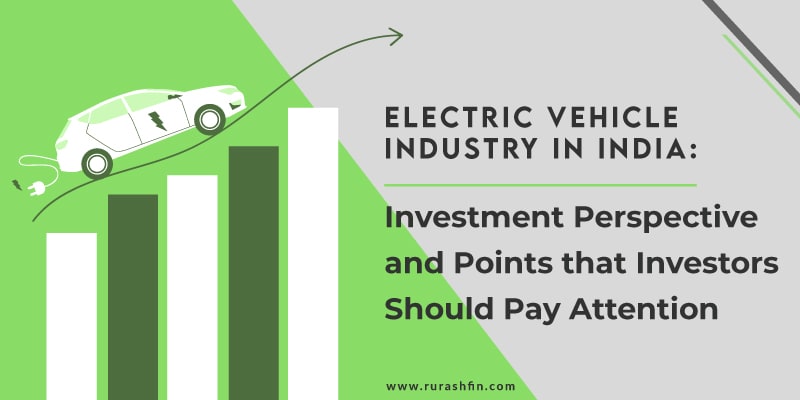The Rise of Electric Vehicles in India: A Paradigm Shift in the Automotive Landscape
India, the world's second largest automobile market, is witnessing a transformative shift in the automotive sector as electric vehicles (EVs) gain momentum. Once considered a niche segment, EVs are now capturing the attention of both consumers and manufacturers alike, propelling India towards a greener and more sustainable transportation future.

Factors Driving EV Adoption
Several factors are contributing to the growing adoption of EVs in India:

* Government Incentives: The Indian government has introduced various incentives to promote EV adoption, including tax breaks, subsidies, and infrastructure support.
* Rising Fuel Costs: The increasing cost of fossil fuels is making EVs a more cost-effective alternative.
* Environmental Concerns: Growing awareness about environmental pollution and climate change is driving consumers towards eco-friendly transportation options.
* Technological Advancements: EV technology has advanced significantly in recent years, resulting in improved performance, longer ranges, and faster charging times.

Market Overview
The Indian EV market is witnessing a surge in activity, with numerous manufacturers introducing new models and expanding their production capacities.
* Passenger Vehicles: The passenger EV segment is dominated by Tata Motors, which holds a significant market share with its Nexon EV and Tigor EV models. Mahindra & Mahindra, Hyundai, and MG Motor also have notable offerings.
* Two-Wheelers: The two-wheeler EV segment is witnessing rapid growth, with Hero Electric, Ampere Vehicles, and Okinawa Autotech among the leading players.
* Commercial Vehicles: The commercial EV segment is still in its early stages, but companies like Ashok Leyland and Tata Motors are developing electric buses and trucks.
Key Market Trends
Several key trends are shaping the EV market in India:
* Increasing Model Availability: A wide range of EV models are now available, catering to diverse consumer preferences and budgets.
* Growing Infrastructure: The government is investing heavily in charging infrastructure, with plans to establish a network of charging stations across the country.
* Local Manufacturing: Indian manufacturers are ramping up EV production to meet the growing demand.
* Battery Technology Advancements: Research and development efforts are focused on improving battery performance and reducing costs.
Challenges and Opportunities
While the EV market in India is growing rapidly, there are still some challenges that need to be overcome:
* Cost Barriers: Despite government incentives, EVs are still more expensive than conventional vehicles.
* Range Anxiety: Consumers often have concerns about the limited range of EVs, especially during long-distance journeys.
* Charging Infrastructure Deficit: The availability of charging stations is still not widespread enough to alleviate range anxiety completely.
However, these challenges also present opportunities for businesses:
* Investment in Charging Infrastructure: The development of a robust charging network would provide convenience to EV owners and boost adoption.
* Battery Technology Innovation: Advancements in battery technology would address range anxiety and make EVs more competitive.
* Affordable EV Manufacturing: Establishing local production facilities and optimizing supply chains can reduce EV costs and increase accessibility.
Government initiatives
The Indian government is playing a crucial role in promoting EV adoption through various initiatives:
* FAME Scheme: The Faster Adoption and Manufacturing of Electric Vehicles (FAME) scheme provides financial incentives to EV manufacturers and buyers.
* National Electric Mobility Mission Plan 2020: This plan aims to make India a global leader in electric mobility.
* Bharat Stage VI Norms: These emission standards encourage the adoption of cleaner technologies, including EVs.
Impact on the Automotive Industry
The rise of EVs in India is having a profound impact on the automotive industry:
* Shift in Consumer Preferences: Consumers are becoming more inclined towards environmentally friendly and cost-effective transportation options.
* Technological Transformation: Automakers are investing heavily in EV research and development to meet consumer demand.
* New Market Segments: The EV market is creating new opportunities for businesses involved in EV manufacturing, charging infrastructure, and battery technology.
* Job Creation: The EV sector is creating new jobs in manufacturing, engineering, and infrastructure development.
Environmental Benefits
The adoption of EVs in India has significant environmental benefits:
* Reduced Carbon Emissions: EVs produce zero tailpipe emissions, contributing to cleaner air and mitigating climate change.
* Decreased Air Pollution: EVs help reduce air pollution in cities, improving public health.
* Sustainability: EVs promote a more sustainable transportation system by reducing dependence on fossil fuels.
The electric vehicle revolution in India is gaining momentum, driven by a combination of government incentives, environmental concerns, and technological advancements. The rise of EVs is transforming the automotive industry, creating new market segments, boosting economic growth, and promoting environmental sustainability. As the government continues to invest in infrastructure and technology, India is well-positioned to become a global leader in electric mobility, paving the way for a cleaner and more sustainable transportation future.
